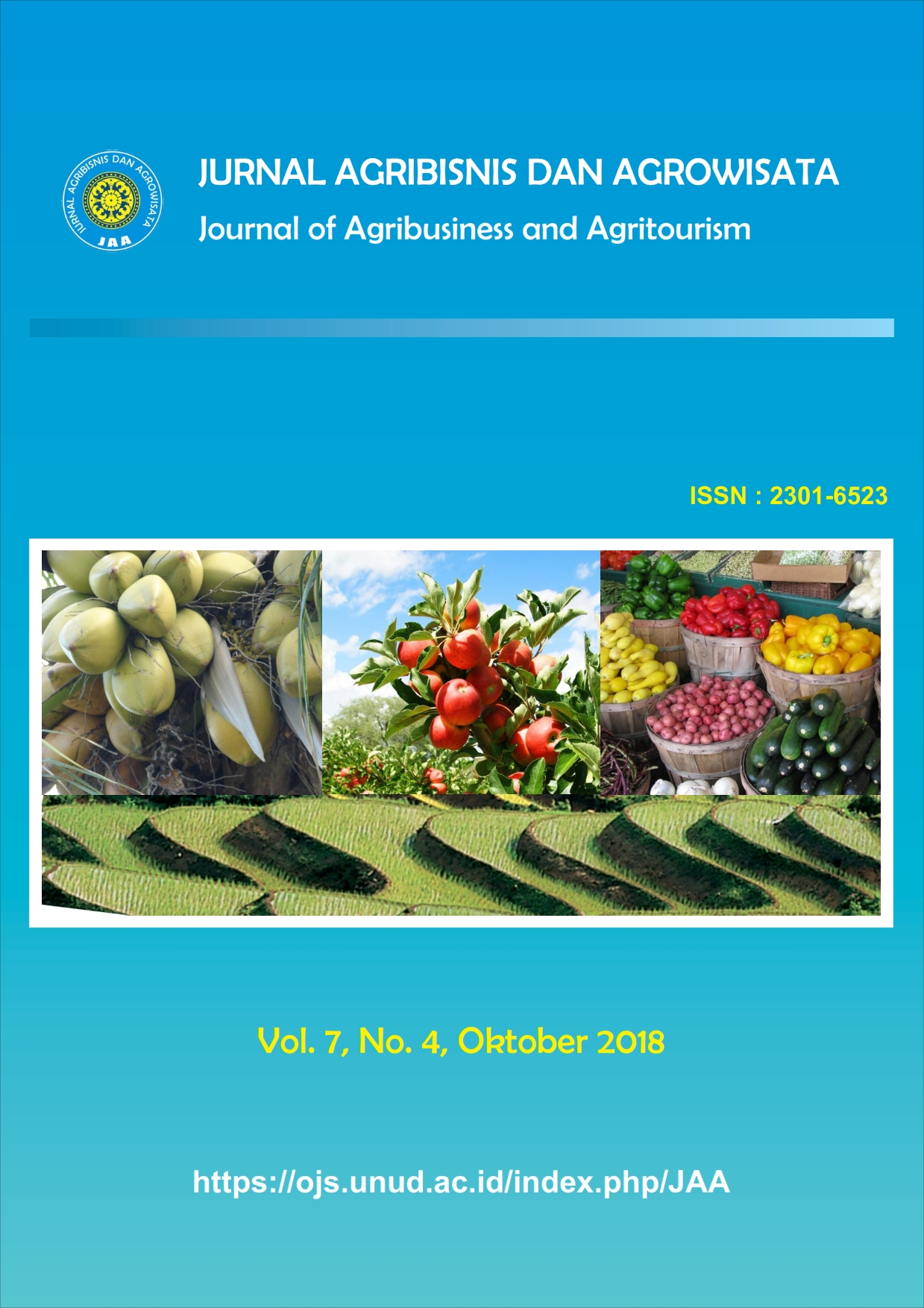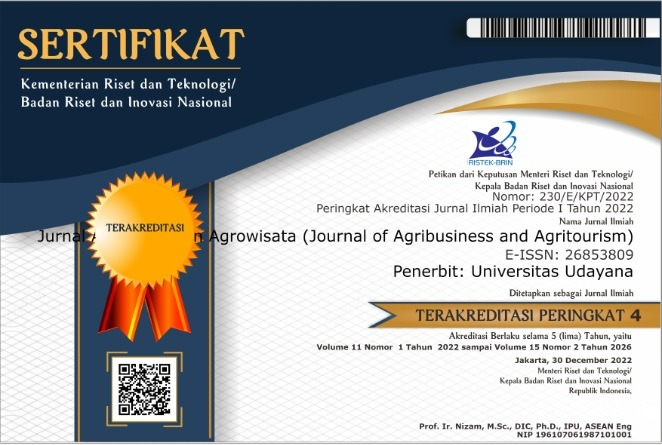Pengembangan Wilayah Berdasarkan Komoditas Unggulan di Kecamatan Petang, Kabupaten Badung, Provinsi Bali
Abstract
Regional economic growth is essentially a series of businesses and policies aimed at
improving economic relations from the primary sector to the secondary and tertiary
sectors. Economic development is a policy focused on improving people's living
standards, expanding employment, declaring revenue sharing and improving regional
relationships among regions. The balance of development in North Badung and South
Badung is often a discourse. The synergy of the tourism and agriculture sectors is the
answer to making this happen. This study aimed to identify superior and non-superior
commodities as well as formulate a strategy of developing superior commodities in
Petang District. The data used were secondary data in the form of time series data or
agricultural production data of Badung Regency and Petang District in 2011-2015. The
data were collected by document study and in-depth interviews, analyzed by Location
Quotient (LQ) and SWOT analysis method. The result of the analysis shows that food
commodities belonging to the main commodities are corn, peanut, sweet potato, cassava
and asparagus while the rice commodity is included in non-commodity commodity.
Plantation commodities included in the main commodities are coffee, cloves and
vanilla, while coconut and cocoa are included in non-commodity commodities. Strategic
development of superior commodities that need to be taken is to explore the potential of
natural resources and improve the quality of human resources for the development of
superior commodities in Petang District.







